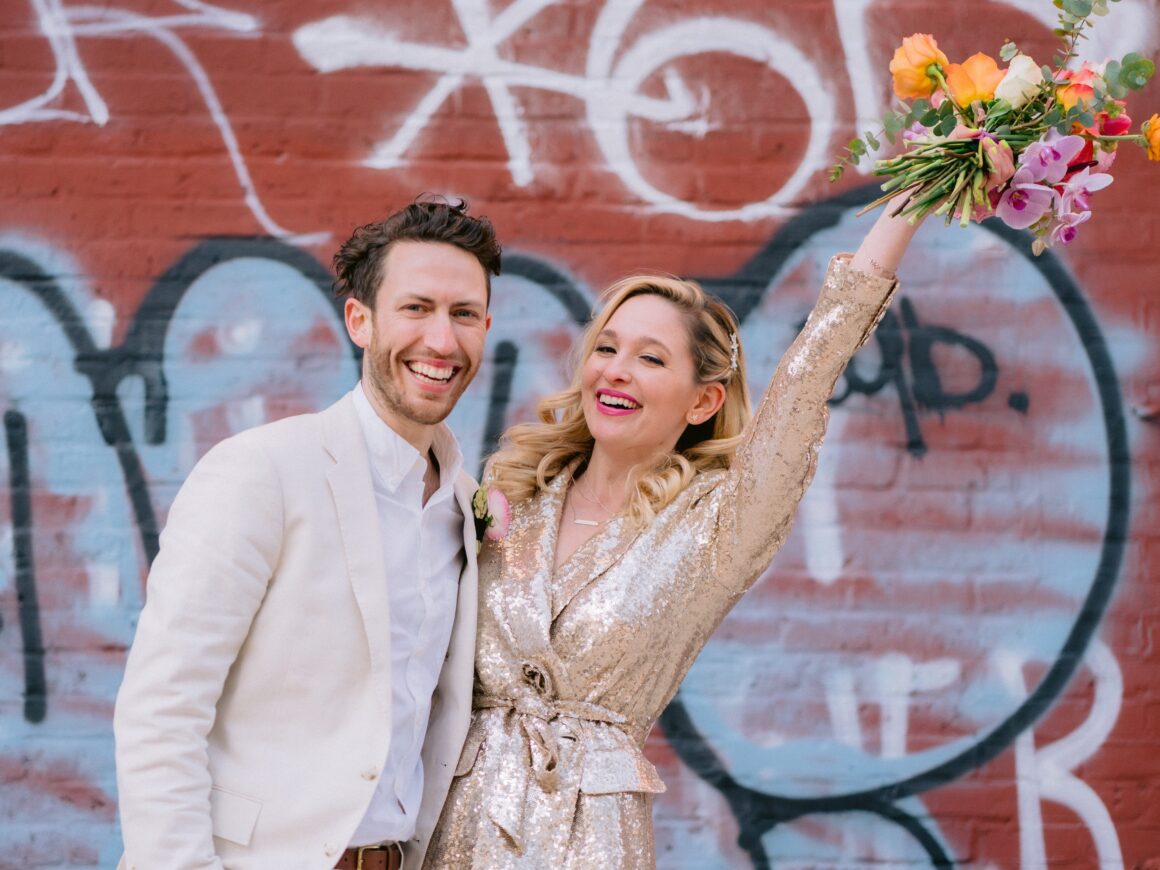Susan Shek Photography
- My husband and I keep our money mostly separate because we have different investment strategies.
- He recently told me to put my money in a high-interest crypto account, but I didn't take the advice.
- It's not FDIC insured or easy to withdraw from, and many cryptocurrencies aren't stable.
- Read more from Personal Finance Insider.
One of the biggest and best decisions my husband and I made when we got married last March was to keep the majority of our finances separate.
We have one joint checking account that stores money from our wedding gifts, but other than that, we have separate credit cards, investment accounts, and savings accounts.
This works especially well for us, because we have different opinions on some big financial strategies. For example, my husband is more comfortable investing in cryptocurrencies and NFTs.
I'm a bit more conservative with putting my money into digital coins and art, although I have made very small investments in both.
At the start of 2022, my husband encouraged me to put a chunk of the cash in my traditional savings account into a cryptocurrency high interest account. These accounts let you earn interest on digital assets that you've bought because you're agreeing to let them lend out your cryptocurrency in exchange for the high interest.
While some cryptocurrency accounts offer an interest rate of 8%, or sometimes more, which is significantly higher than the 0.5% my bank currently offers, I'm already uneasy about converting too much cash into cryptocurrency. Ultimately, I decided to ignore my husband's advice. Here's why.
1. There's no deposit insurance
When I put cash into my traditional savings account at a bank, I feel a sense of comfort knowing that it comes with FDIC Insurance, which is a government guarantee that if the bank goes under, my money is protected by up to $250,000 per account.
With most cryptocurrency interest accounts, that's not the case. This means that you're putting your money in a riskier account just for a higher (potential) reward.
Plus, the money you're putting into these cryptocurrency accounts is then lent to different borrowers. If those borrowers default on the loan, there's little-to-no protection and your money might be gone.
2. Withdrawals aren't always easy or free
A big perk of keeping my money in a traditional savings account is that I can withdraw it whenever I'd like for free. For some cryptocurrency savings accounts, your money is a bit more restricted.
For example, some cryptocurrency savings accounts make you pay fees to withdraw your money and some have withdrawal limits, which can cap how much you take out of the account during a specific time period.
While I do have some money in CDs with similar restrictions, I like to keep a lot of my money in a savings account that gives me the freedom to withdraw on a whim.
3. Price volatility
When you put your money in a cryptocurrency savings account, you can decide what digital coin to put it in. If you don't pick a stable coin — ones with value is attached to another stable asset like a precious metal or fiat currency —and instead pick a more volatile coin like Bitcoin, Ethereum, or Amp, then your balance and interest payments can heavily fluctuate based on the market.
Because the prices of these digital coins can go up or down at any moment, and sometimes multiple times a day, that affects the money in your account.
That kind of risk breeds too much unnecessary anxiety, and was ultimately a main reason why I turned down my husband's advice. The perk of us keeping our finances separate is that we can have different financial ideologies and track throughout the year who made the better money move.
